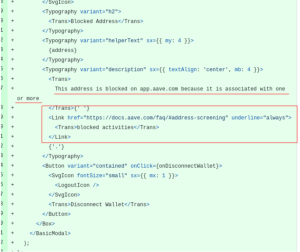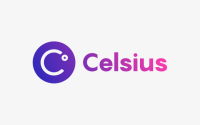Aave is Screening and Blocking User Addresses
Presently, Tornado Cash is entangled in a vicious cycle as many DeFi protocols are dismissing the wallets that have a connection to it. The latest instance in this respect is Aave which has joined Uniswap and Balance.
Some users have complained that Aave is screening their addresses. A user has also shared the proof of his complain in his tweet. Aave is an open source blockchain which means anyone can see its front end verify the information. The documents on Aave platform depict that they can possibly block addresses for terrorist funding but this cannot be true as it has blocked hundreds of addresses so far.

The consumers of the venue normally receive a message regarding the prohibition over the project due to its relation to the banned operation. The ban was implemented to shield against regular access to the protocol’s front-end interface. This is diverse from an outright blockage of the smart contracts. Justin Sun’s address was also blocked a couple of days earlier.
Tornado Cash Hit with Extreme Criticism
The project’s website is at the moment offline and it has been opined by several people that the system can keep the rest of the addresses from using Ethereum for the trading of their tokens. Considerable criticism has been made on Tornado Cash in some of the previous weeks. Numerous questions have been raised regarding the DeFi endeavors’ decentralized nature. A few consumers have attempted to back the campaign by altering the logo of Aave with that of Tornado Cash.
Circle also Bans Tornado Cash-Based USDC
Considerable frustration has been expressed on the social media platform “Twitter” by the crypto community in terms of the violent attitude of Aave in placing this restriction. Circle has additionally become one with the DeFi venues that have stopped access to the mechanism of Tornado Cash. Recently, the platform blocked the USDC present in the wallet of Tornado Cash. Apart from that, DAI (a stablecoin project) is pursuing the dismissal of USDC from the collateral assets series to minimize the hazard related to payment freezing.
The incident turned more complicated at the time of the seizure enacted by the Dutch authorities over a developer of Tornado Cash on 12th August. But, the information regarding the potential legal consequences for that developer is even now unclear. In addition, many decentralized applications working on the network of Ethereum have carried out code alterations to restore their connection with the addresses which received the sanctions.
The respective protocols take into account Aave, Oasis, Uniswap, Balance, and Ren. It seems that this complex situation will keep continuing for Tornado Cash. In such a case, it is possible that many more addresses linked to the protocol to get restricted by several of the other decentralized applications in the coming days.



